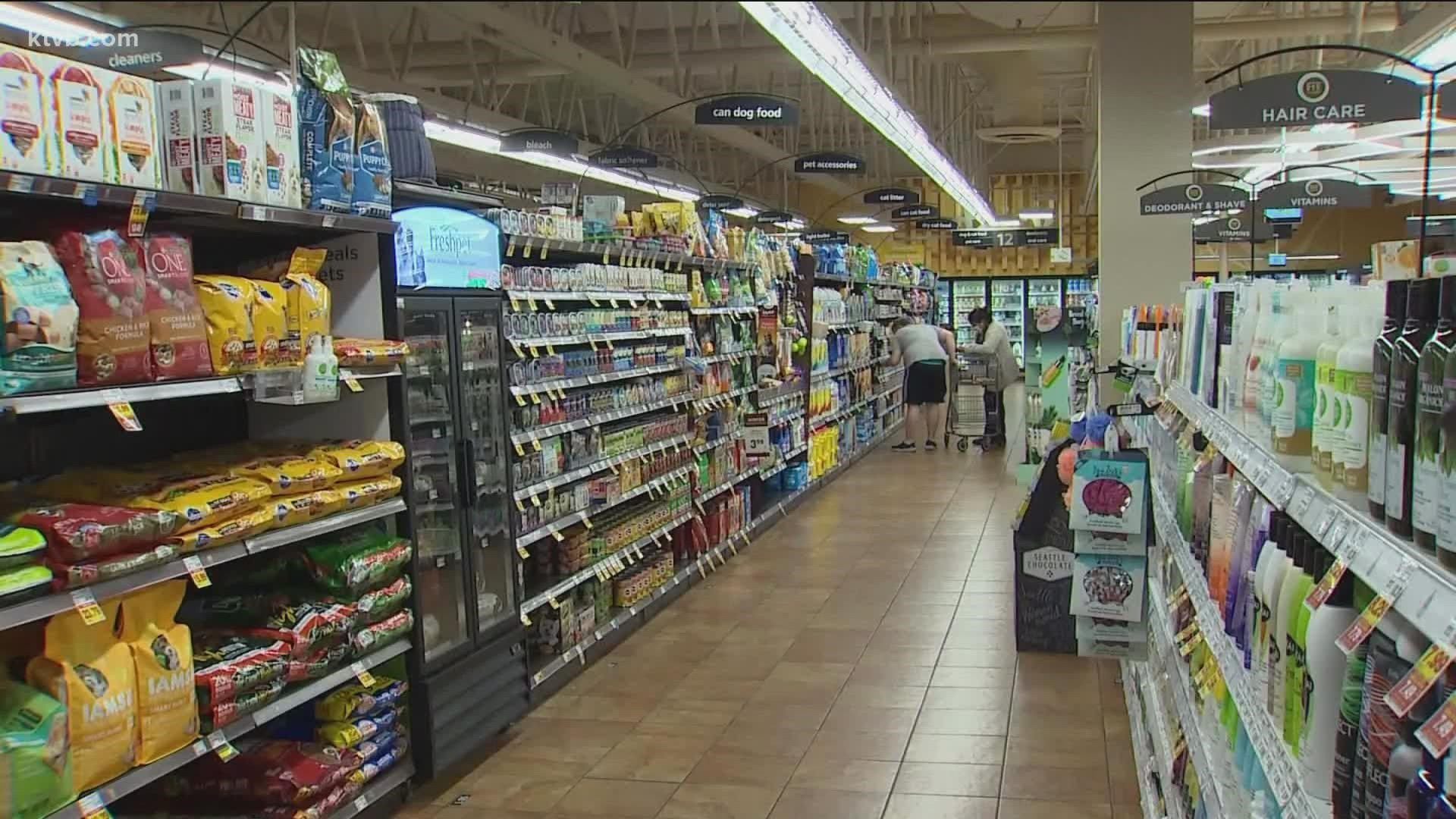IDAHO, USA — Anita Nelson had to make changes to her grocery shopping habits within the last few years to further stretch her dollars’ worth.
"The last couple years it's been ridiculous," Nelson said. "It's a day-by-day struggle sometimes."
She will stop by Albertson's to buy meat then jump across the street to WinCo for cereal. All an effort to find the best deals in a time of financial struggle.
"I literally donate plasma to make ends meet. Just to go grocery shopping," Nelson said.
Nelson used to shop at one store for all her needs; it's a luxury she can no longer afford. She cites inflation for this change and she is not wrong.
"People at the lowest end of the income spectrum, have the hardest ability to absorb those price increases," said Karl Geisler, an associate economics professor at Idaho State University.
Idaho's inflation rate is historically high according to Geisler. In the first half of 2021, inflation grew by 5.4%. This is the highest inflation rate the Gem State has seen in 30 years.
Geisler attributes this to a combination of increased demand, supply chain delays, and lack of competition at the corporate level.
"There's more money chasing fewer and fewer goods," Geisler said. "But the fact we're seeing increases in corporate profits means that they're helping contribute to this high level of inflation."
However, Idaho wages are headed up too. Over the same time period through the first half of 2021, Idaho wages increased 5.8%. This means, generally, Idaho workers aren't falling behind due to inflation.
"We'll see when we get a little more data in the next month or two if that trend continued through the second half of 2021," Geisler said.
But that's not the case for everyone. Nelson specifically hasn't seen her wages increase. In fact, she's even been laid off.
"Hope something changes, for the average normal person," Nelson said. "Each week I try and figure out what bills I can make. And it’s either a couple of bills and rent or rent and no bills. It's been hard."
Additionally, Idaho is seeing the lowest unemployment rate in state history at 2.4% according to Geisler. Coupled with a low labor force participation rate, it's a moment in time where the average worker has an unusually high amount of power to negotiate a pay raise.
"If you ask for a raise from your boss and they’re not willing to give you one, as a worker you have a little bit of leverage right now because there are lots of other placed hiring," Geisler said.
Geisler doesn't expect inflation to continue at this rate. He expects more competition at the corporate level to lower prices with time.
Watch more Local News:
See the latest news from around the Treasure Valley and the Gem State in our YouTube playlist:

